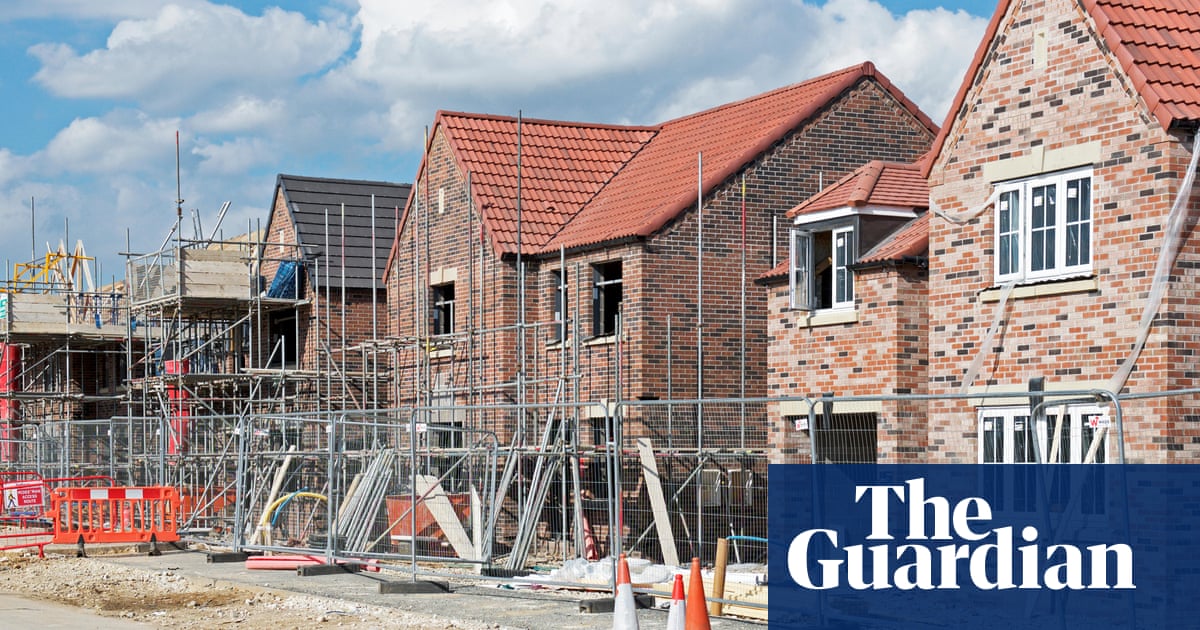Housing bosses representing 1.5m social homes across England will pile pressure on Rachel Reeves to reclassify affordable housing as infrastructure spending, amid an ongoing battle between the chancellor andAngela Rayner.
Rayner, the housing secretary, is one of the last remaining holdouts in negotiations with the Treasury over departmental spending settlements, amid deep dissatisfaction with the level of funding for social homes in the spending review due next week.
The Department forHousing, Communities and Local Government has been battling for more funding for the affordable homes programme as well as trying to preserve cash for local councils and homelessness and regional growth initiatives. Negotiations were “down to the wire”, one government source said.
Six housing association groups have written to Rayner asking for social housing to be classified as critical infrastructure, which would allow Reeves to commit extra funds without breaking her fiscal rules.
There is more freedom around capital spending for the chancellor, who has £113bn to invest under changes to the fiscal rules. Housing bosses have argued that building more homes would help tackle the extraordinary backlog for social homes and benefit the hundreds of thousands of people living in temporary accommodation.
The chief executive of Peabody, one of the largest housing providers in the south-east of England, made the same callin the Guardian last Saturday.
The submission comes from partnerships in Greater Manchester, Liverpool, Hull and East Yorkshire, South Yorkshire, West Yorkshire, and York and North Yorkshire, and Homes for the South West.
Nick Atkin, the chief executive of Yorkshire Housing, said: “Housing has a pivotal role in economic growth. Reclassifying investment in affordable homes as infrastructure spending is a vital step to unlocking the long-term confidence and funding needed to build at the scale to meet the government’s ambition.
“This was echoed at a recent roundtable with senior figures from major investment firms and leading economists, where there was clear consensus that reclassification would boost investor confidence, create jobs, increase lending and ultimately drive the growth in housebuilding our country urgently needs.”
In their submission, the groups said reclassification was critical to ending short-term funding cycles for affordable homes. “Reclassification is the only way we can we deliver the pipeline of new homes needed, alongside the decarbonisation of existing homes and the renewal of our towns and cities,” the submission said.
“Housing is fundamentally essential and significant infrastructure, and therefore funding should be classified in the same way as other significant national projects such as road, rail, schools and hospitals. With the support of recent planning reforms, new homes could be delivered at the pace and scale needed to tackle the housing crisis.”
There are 14 areas of national life currently listed as critical infrastructure, including defence, data, energy, food, health and transport, but not housing. If housing were to be included, it would make it easier for spending on it to be excluded from normal fiscal rules, as it would not count against government debt.
Shelter and National Housing Federation have suggested that about 90,000 social homes a year are needed to hit the government’s manifesto target of 1.5m new homes, at a cost of about £11.8bn each year.
The investment is forecast to support almost 140,000 jobs and generate significantly higher economic output, breaking even within three years.
